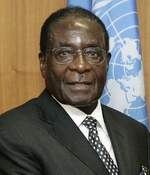 To curb “unsound” procurement practices that are “slowing down” Zimbabwe’s economic growth a new Procurement Bill would be drafted and tabled in Parliament before the end of the year, President Robert Mugabe announced in his State of the Nation address.
To curb “unsound” procurement practices that are “slowing down” Zimbabwe’s economic growth a new Procurement Bill would be drafted and tabled in Parliament before the end of the year, President Robert Mugabe announced in his State of the Nation address.
The Bill will incorporate COMESA procurement guidelines which emphasise devolution of power to award tenders to procuring entities. These organisations will include government ministries, parastatals, state enterprises and local authorities, Mugabe said.
The State Procurement Board will also be transformed into a new non-executive procurement authority tasked with setting standards and guidelines as monitoring compliance by procurement entities and act as advisor to the government on Public Procurement Policy.
President Mugabe said economic growth was expected to be 1.5 per cent in 2015, instead of the initially projected 3.2 per cent, which he mainly blamed on the negative impact of drought in the agriculture sector.
He also outlined a 10-point-plan for economic growth which included revitalising agriculture and the agro-processing value chain, infrastructure development, particularly in the key energy, water, transport and IT subsectors, modernising labour laws and unlocking the potential of small and medium-sized enterprises.
“Although the SMEs sector has steadily become the main source of livelihood for many, the youth, retrenchees and the unemployed, among them, the sector is experiencing several challenges. Government will need to address SMEs operating infrastructure, such as construction of vendor marts and factory shells, and the provision of human power training.”
He also said the government had “turned the spotlight on corporate governance throughout the public sector”.
“It is very clear that, over many years and due to a variety of reasons, the level of compliance with good corporate governance principles at many, if not most of our parastatals/state enterprises, has fallen to levels well below what might be regarded as even ‘minimally acceptable’,” he added.
This article first appeared in Supply Management


























